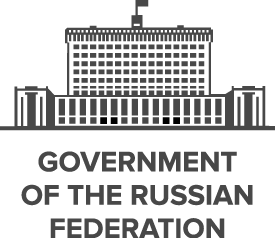Founded in the 12th century, the Principality of Muscovy was able to emerge from over 200 years of Mongol domination (13th-15th centuries) and to gradually conquer and absorb surrounding principalities. In the early 17th century, a new ROMANOV Dynasty continued this policy of expansion across Siberia to the Pacific. Under PETER I (ruled 1682-1725), hegemony was extended to the Baltic Sea and the country was renamed the Russian Empire. During the 19th century, more territorial acquisitions were made in Europe and Asia. Defeat in the Russo-Japanese War of 1904-05 contributed to the Revolution of 1905, which resulted in the formation of a parliament and other reforms. Repeated devastating defeats of the Russian army in World War I led to widespread rioting in the major cities of the Russian Empire and to the overthrow in 1917 of the imperial household. The communists under Vladimir LENIN seized power soon after and formed the USSR. The brutal rule of Iosif STALIN (1928-53) strengthened communist rule and Russian dominance of the Soviet Union at a cost of tens of millions of lives. After defeating Germany in World War II as part of an alliance with the US (1939-1945), the USSR expanded its territory and influence in Eastern Europe and emerged as a global power. The USSR was the principal adversary of the US during the Cold War (1947-1991). The Soviet economy and society stagnated in the decades following Stalin’s rule, until General Secretary Mikhail GORBACHEV (1985-91) introduced glasnost (openness) and perestroika (restructuring) in an attempt to modernize communism, but his initiatives inadvertently released forces that by December 1991 splintered the USSR into Russia and 14 other independent republics.
Following economic and political turmoil during President Boris YELTSIN's term (1991-99), Russia shifted toward a centralized authoritarian state under the leadership of President Vladimir PUTIN (2000-2008, 2012-present) in which the regime seeks to legitimize its rule through managed elections, populist appeals, a foreign policy focused on enhancing the country's geopolitical influence, and commodity-based economic growth. Russia faces a largely subdued rebel movement in Chechnya and some other surrounding regions, although violence still occurs throughout the North Caucasus.
Russia is a semi-presidential federation.
Members:
Resources
Displaying 756 - 760 of 1046Regional Law No. 462-01-ZMO “On regulation of land relations”.
This Regional Law establishes priorities of the regional land policy as follows: (a) conservation of most valuable land; (b) conservation of agricultural land and protected areas; (c) realization of the right of regional residents to land allotment; (d) land tenure by methods ensuring conservation of ecosystem; and (e) payment of land charges for land use. Public and municipal land can be allotted to citizens in ownership, on lease, permanent (open-ended) tenancy or fixed-term tenancy free of charge.
Regional Law No. 447-OZ “On limits (minimum and maximum) of public and municipal land plots that can be allotted to citizens in ownership”.
This Regional Law establishes minimum and maximum land areas out of stock of public and municipal land allotted to citizens in ownership. Land parcels shall be allotted to citizens for peasant farming, subsistence farming. individual housing construction, gardening, horticulture and stockbreeding. Decision on allotment of land parcels shall be made by the Regional Administration and local government within their competence. Maximum land areas of land plots allotted to citizens free of charge shall be established in accordance with legislative acts validated by the local government.
Regional Law No. 801-01-ZMO “On cultural heritage”.
This Regional Law regulates relations in the sphere of conservation, protection and management of the objects of cultural heritage. Regional Administration shall ensure mapping of the boundaries of land areas containing objects of cultural heritage and state registration of the objects of cultural heritage. Identification of the objects of cultural heritage shall be performed by the by the authorized regional state institution in the sphere of cultural heritage.
Amended by: Regional Law No. 1894-01-ZMO amending Regional Law No. 801-01-ZMO “On cultural heritage”. (2015-07-03)
Regional Law No. 10-4743 amending Regional Law No. 7-2542 on regulation of land relations.
Article 8 shall be amended to add the following wording: “Public land plots shall be allotted to citizens and legal persons for purposes non-related to construction in ownership, permanent (open-ended) tenancy, tenancy for a determined period free of charge or in lease in accordance with the acting legislation”.
Amends: Regional Law No. 7-2542 on regulation of land relations. (2009-11-24)
Regional Law No. 120-ZKO “On objects of cultural heritage”.
This Regional Law establishes the particulars of state protection of the objects of cultural heritage, including conservation, management and promotion thereof. Regional Administration shall be responsible for validation of the boundaries and mapping of areas containing objects of cultural heritage, types of land tenure and land use planning in the aforesaid areas. Objects of cultural heritage shall be subject to mandatory state registration. Land areas containing objects of cultural heritage shall be classified as land of cultural heritage.


